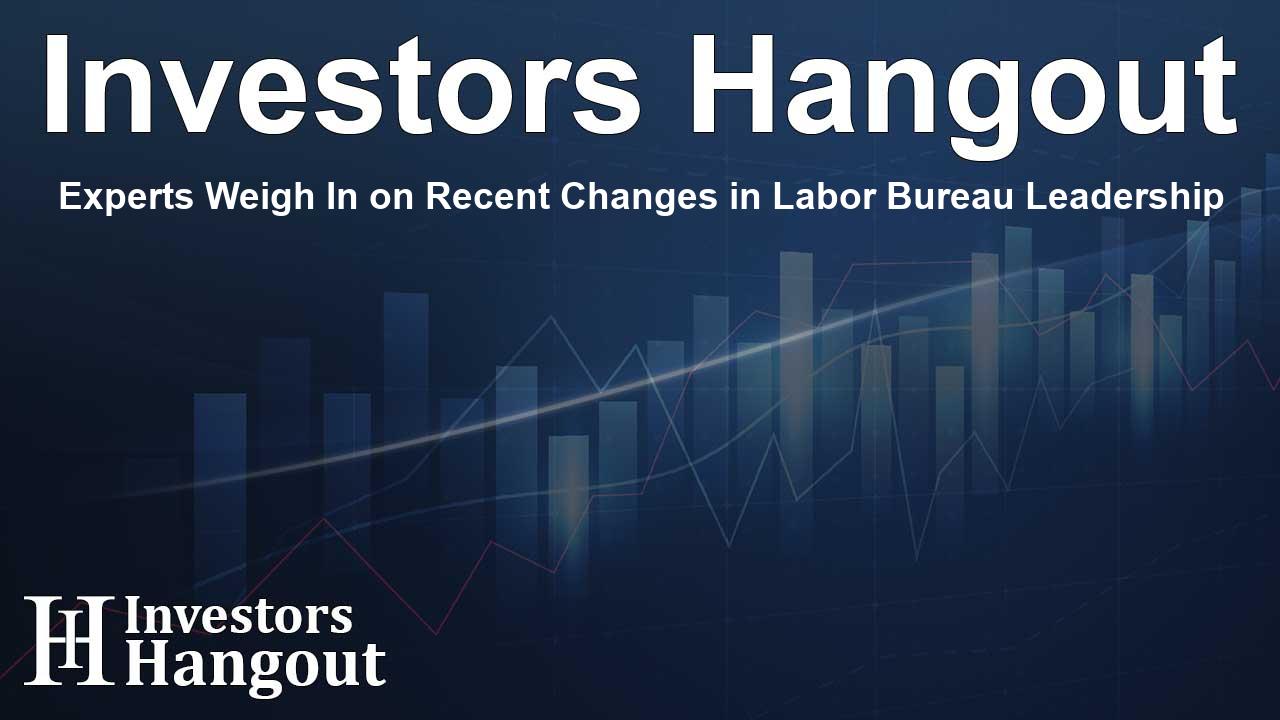Experts Weigh In on Recent Changes in Labor Bureau Leadership

Expert Insights on Labor Bureau Changes
Billionaire investor Ray Dalio has publicly shared his thoughts regarding the dismissal of the Commissioner of the Labor Bureau. This action by President Trump has sparked considerable debate, particularly following a significant downward adjustment to employment data.
Dalio's Perspective on the Dismissal
In a recent post on social media, Dalio expressed that he would likely have taken similar actions, noting issues with the current mechanisms in place for generating economic figures. He indicates that the systems used are outdated and lack a robust plan for improvement.
Consequences of Incorrect Economic Data
Dalio remarks on the critical nature of accurate reporting, especially in light of a historic revision to the jobs report that indicated an unexpected drop in job numbers for the months past. He stressed that these discrepancies can have wide-ranging implications on economic policy.
The Need for Clarity
While acknowledging the challenges within the existing data reporting structures, Dalio emphasizes the necessity for clear communication from President Trump regarding the rationale behind this dismissal. If the action stems from political motivations, he argues, it could undermine public trust in economic statistics.
The Importance of Transparency
Dalio argues that manipulating economic data for political gain indicates a decline in the integrity of a system founded on the rule of law. Such actions, he states, represent a significant threat to the credibility of economic reporting.
Opinions from Other Economists
Other financial experts, such as venture capitalist David Sacks, have echoed Dalio's concerns about the quality of data coming from the Bureau of Labor Statistics (BLS). They emphasize the essential role accurate data plays in informed economic decision-making.
Criticism of BLS Practices
Concerns regarding the quality and accuracy of BLS data have been highlighted by many in the financial sector. Sacks reiterated that inaccuracies resulting from revisions present challenges similar to those faced by hedge fund managers, where significant errors could lead to job loss.
Calls for New Data Models
Expert economist Jeremy Siegel also commented, criticizing the Bureau for not providing adequate explanations regarding the extent of the recent data correction. He questioned why there was no prior alert on inaccuracies that had potential impacts on monetary policy during pivotal FOMC meetings.
Potential Solutions for Economic Reporting
Investor Chamath Palihapitiya has proposed the need for a more reliable form of data provision that could potentially address these shortcomings. He suggests a fresh approach to how jobs data is collected and reported to ensure accuracy and timeliness.
Feedback on Proposed Changes
Despite the appeal for a new data model, some experts, including investor Mark Cuban, have voiced skepticism. He raises practical questions about the funding and implementation of such an initiative, emphasizing the need for a feasible plan in execution.
Final Thoughts on Leadership Decisions
The discussions initiated by Dalio, Sacks, and others reflect a larger dialogue about transparency and the accountability of those in leadership positions regarding economic data. Their insights suggest a need for better practices that ensure data integrity and public confidence.
Frequently Asked Questions
1. What was Ray Dalio's opinion on the dismissal of the BLS Commissioner?
Dalio supports the decision, citing issues with the data integrity of the Bureau of Labor Statistics and the need for modernization.
2. Why are economic data revisions a concern?
Revisions can mislead policymakers and the public, resulting in potential missteps in economic strategy and public trust erosion.
3. What do experts suggest for improving labor data collection?
Experts like Palihapitiya advocate for a new data provider model to enhance accuracy and reliability in reporting.
4. How do political decisions impact economic reporting?
Political motivations can affect the impartiality and accuracy of data, which undermines trust in reporting systems.
5. What are the broader implications of inaccurate job data?
Inaccurate job data can influence critical decisions on interest rates and fiscal policy, affecting the overall economic climate.
About The Author
Contact Owen Jenkins privately here. Or send an email with ATTN: Owen Jenkins as the subject to contact@investorshangout.com.
About Investors Hangout
Investors Hangout is a leading online stock forum for financial discussion and learning, offering a wide range of free tools and resources. It draws in traders of all levels, who exchange market knowledge, investigate trading tactics, and keep an eye on industry developments in real time. Featuring financial articles, stock message boards, quotes, charts, company profiles, and live news updates. Through cooperative learning and a wealth of informational resources, it helps users from novices creating their first portfolios to experts honing their techniques. Join Investors Hangout today: https://investorshangout.com/
The content of this article is based on factual, publicly available information and does not represent legal, financial, or investment advice. Investors Hangout does not offer financial advice, and the author is not a licensed financial advisor. Consult a qualified advisor before making any financial or investment decisions based on this article. This article should not be considered advice to purchase, sell, or hold any securities or other investments. If any of the material provided here is inaccurate, please contact us for corrections.
